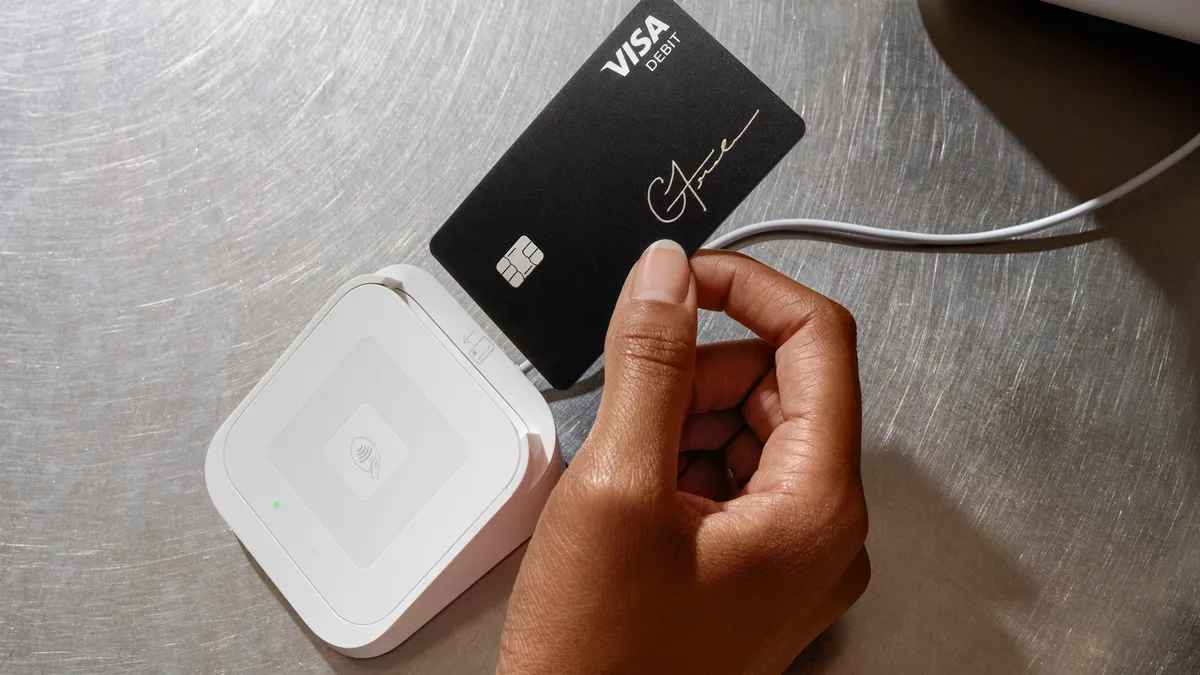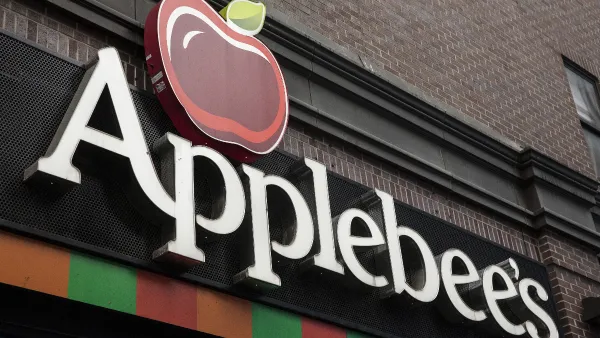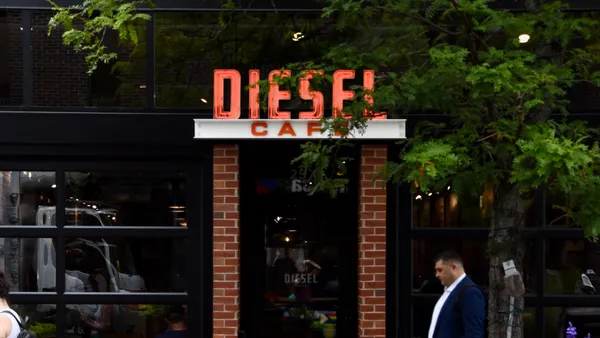Dive Brief:
- SoundHound AI, an artificial intelligence voice platform, announced on Thursday a new offering that allows restaurants to automate phone ordering. The feature will be integrated with Square’s point-of-sale systems.
- SoundHound for Restaurants’ voice assistant leverages conversational AI technology to answer phone calls, take orders, accept modifications and send confirmations to complete payments. Restaurant operators connect the technology to their Square POS, sync the menu they want the voice assistant to use and input their phone number to activate the tool.
- The growth of AI and automation in restaurants is likely to continue, with 50% of U.S. operators planning to implement some form of automation technology in the next two to three years, per a Lightspeed report.
Dive Insight:
The objective of SoundHound for Restaurants is to meet diner demand as operators juggle higher volumes from digital channels while maintaining a high level of customer service.
"Our partnership with SoundHound allows us to offer innovative and cost-effective solutions to restaurants working with small profit margins and facing multiple challenges—including the high cost of rapid labor turnover and shortages," Bryan Solar, head of restaurants at Square, said in a statement. "This integration provides our sellers with the tools they need to offer a consistently high-level of customer service."
SoundHound has secured significant room to expand through its partnership with Square, one of the restaurant industry’s most popular POS systems. AI phone ordering could improve customer service that has been hurt by employee shortages, a value proposition that could draw more restaurants to the platform.
Several companies are turning to AI-powered solutions to help with order facilitation and other tasks. Chipotle and White Castle have added Miso Robotics’ AI-powered technology to their kitchens to help cook, while Checkers & Rally’s has deployed AI drive-thru tech from Presto and Valyant AI. Wendy's is using Google Cloud's AI tools to improve the guest experience, and Papa John’s recently added an AI-assisted call center, called PapaCall.
All of these systems free up workers to focus on making and delivering food, which could improve speed of service and product quality. That's a value add that may continue to entice restaurants to invest in AI-driven solutions, contributing to the sector's growth. The global AI market is expected to be valued at over $190 billion by 2025.
Restaurants aren’t alone in testing AI implementation, either. McKinsey reported in 2021 that 56% of businesses have adopted AI in at least one function, up from 50% in 2020. This acceleration is allowing customers to become more familiar with the technology, which could also speed up restaurant adoption. A 2021 report from Interactions, a company that makes AI-enabled virtual assistants, found 65% of customers feel comfortable speaking with an AI-powered customer service solution.













